Is the 'Trillion Trees Act' Remotely Possible?


Republican lawmakers recently introduced and sponsored a bill to plant a trillion trees around the world by 2050. U.S. Rep. Bruce Westerman (R-Arkansas) introduced the Trillion Trees Act on Feb. 12, touting trees as the “ultimate carbon sequestration device.”
Even U.S. President Donald Trump, a notorious climate change skeptic, came out in support of the initiative, saying it demonstrates his “strong leadership in restoring, growing and better managing our trees and our forests.” Salesforce CEO Marc Benioff has echoed such sentiments, stating during the recent World Economic Forum in Davos, “Trees are a bipartisan issue — everyone's pro-trees.”
What are the motives behind the One Trillion Trees Act?
Yet the reasons for focusing on forests go beyond doing good. As Westerman’s co-sponsors noted, the legislation will support increased logging. Rep. Pete Stauber (R-Minnesota) announced that part of his support was because he was, “proud to stand with our loggers in introducing this legislation, as the forest and paper industry is a cornerstone of northern Minnesota’s economy.”
Regardless of lawmakers’ motives, is the initiative even feasible?
Rep. Don Bacon (R-Nebraska) believes it is possible. Invoking the American can-do spirit, Bacon cited a historic event, when “An estimated one million trees were planted in Nebraska on April 10, 1872.”
If American settlers using nineteenth century technology in remote Nebraska could accomplish such a feat, what would it take for a globalized twenty-first century society to multiply that effort by 1 million?
Is planting one trillion trees even possible?
At first glance, it isn’t a pretty picture. The U.S. part of the plan is 24 billion trees in 30 years, or 800 million trees per year. Meanwhile, world population growth demands an increasing amount of land to be used for agriculture, all while we’re rapidly losing topsoil.
But, let’s not lose the forest for the trees.
A recent World Resources Institute (WRI) article found that the United States has room for an additional 60 billion trees.
Reforesting the U.S.
For starters, suburban and rural areas have a lot of open space that could house up to 21 billion trees. An additional 24 billion trees could be restored to the 50 percent of U.S. forests that the Forest Service deems “understocked.” U.S. cities, meanwhile, could have enough space for up to 400,000 trees.
Silvopasture, which integrates pastureland, forage crops and trees, could play another viable means for increasing America’s tree stock, with pastures hosting a further 13 billion trees. Even some row crops could tolerate interplanting with canopies, or at least yield the edges of fields to windbreaks and soil retention, adding another 2 billion trees.
How would the U.S. fund these managed forests?
WRI concluded that American landholders would need a collective $4 billion to $4.5 billion annual subsidy to offset tree planting costs. While that is less than the U.S. spends on the fossil fuel industry, it’s certainly not small change.
Chief among their suggestions was to make third parties eligible to receive the subsidies. This would remove the burden of management from farmers who are often already too overworked to consider small subsidy programs that, while they would enhance their bottom line, are not a top priority.
By passing subsidies through third parties, efficiencies could be unlocked, such as pooling landowners together and having one consultant provide technical knowledge to a range of practitioners.
As a means to pass public funds on to third parties, WRI recommended tapping into the U.S. Department of Agriculture’s current program to compensate landowners for conservation measures in both forested and agricultural lands. Local and state smart growth plans could also incorporate “tree restoration targets,” serving as an additional facilitator for federal grants to reach local landowners.
There is space in the American landscape for more trees. As the Trillion Trees Act makes its way through Congress, will the political landscape demonstrate adequate public support for a massive, sustained tree planting campaign?
Image credit: Charlie Wollborg/Unsplash
After Moving From Coal to Wind, Ørsted's Next Step is Carbon Neutrality


Amazon’s Jeff Bezos recently pledged $10 billion of his personal fortune to address the climate crisis through a new grantmaking fund. But if he were really serious about cutting carbon emissions, he would take a cue from Ørsted. The Danish energy company announced an ambitious net-zero carbon emission goal in January, and earlier this month it spelled out the steps to achieving that goal.
Spoiler alert: The Ørsted plan involves a deep transformation within the company, and outside of it as well.
The Ørsted goal, wind energy and the bottom line
Soon after Bezos announced his new $10 billion Earth Fund, critics pointed out the obvious conflict with Amazon’s pursuit of oil and gas business.
Ørsted has charted a different course. Previously known as an oil, gas and coal-dependent energy company, Ørsted began transitioning to renewable energy in 2010.
In just 10 years, the transformation of its own portfolio is largely complete, as Ørsted ratchets down its fossil business to focus on wind energy and other renewables.
On January 30, Ørsted CEO Henrik Poulsen announced the company’s goal of achieving carbon neutral status by 2025. He emphasized that the company’s progress so far puts it in position to realize that goal — while achieving bottom line benefits.
"We've transformed from producing energy based on fossil fuels to producing carbon neutral energy. We've seen a real strengthening of our business and shown that a rapid green turnaround is possible,” Poulsen explained in a press statement.
Poulsen also noted that just 10 years ago, Ørsted was known as one of the most coal-dependent energy companies in Europe.
The Ørsted difference: Carbon offsets don’t cut it
In the January announcement, Ørsted referred to its earlier pledge of almost $30 billion to invest in renewables between 2019 and 2025. The aim was to push its carbon footprint down by 98 percent or more — and it wasn’t going to stop there.
Ørsted cited transitioning its fleet to electric vehicles by 2025 and winding down its natural gas trading activities as chief among the next steps. According to the company, carbon offsets will come into play only where necessary.
That de-emphasis on carbon offsets is an important one. Other energy companies, notably BP and Repsol among others, have announced climate plans that appear to lean heavily on offsets while continuing to produce oil and gas.
In that context, the new Bezos Earth Fund appears to be an elaborate offset that enables Amazon Web Services (AWS) to continue promoting its oil and gas business.
As of this writing, AWS still offers oil and gas services aimed at accelerating, not reducing, fossil fuel production.
On its oil and gas page, AWS promised that “explorers can extract deep insights faster to improve field planning, geoscientists can run more demanding HPC workflows and identify potential reservoirs faster and cheaper…”
Getting to net-zero carbon emissions: pushing the supply chain envelope
The AWS oil and gas business model is a stark contrast with Ørsted’s 2040 goal.
Ørsted described its 2040 net zero carbon plan in detail earlier this month. In doing so, it laid out a roadmap for companies like Amazon to follow.
With Ørsted already on track to achieve carbon neutral operations by 2025, the 2040 plan focuses on decarbonizing secondary activities. That means shedding its gas trading business as well as leaning on its supply chain to decarbonize.
If that seems rather ambitious, it is. The plan calls for achieving net zero 10 years before the widely accepted decarbonization goal of 2050.
The company is confident that it can meet that goal, partly through its buying power. By setting a course of rapid action for itself, Ørsted anticipates that it will drive new clean technology into the marketplace more rapidly.
“Many of the green technologies to be used to decarbonize our supply chain exist but they're not yet cost competitive. With the 2040 target, we want to help drive the necessary innovation forward to mature the green technologies in the industries that supply to us,” Poulsen explained.
The secret ingredient: hydrogen
Of interest to hydrogen fans, those innovations could refer specifically to renewable hydrogen.
Industrial manufacturers are just beginning to explore renewable hydrogen as an alternative fuel and power source, but the cost of producing renewable hydrogen in bulk has yet to come down.
If and when it does, Ørsted will be able to procure wind turbines, foundations, substations and cables with a smaller carbon footprint.
To that end, Ørsted has joined the U.K.’s “Gigastack” project aimed at demonstrating an industrial scale system for producing cost-competitive renewable hydrogen.
The hydrogen project also benefits Ørsted directly because it would provide a significant new market for electricity sourced from renewable energy, namely, from the company’s wind farms. The Gigastack project involves electrolysis, in which an electrical current is deployed to “split’ hydrogen from water.
If you want it done right…
Over and above the additional market benefit, Ørsted’s hands-on involvement in supply chain decarbonization indicates another important milestone in corporate climate action.
Instead of waiting for its supply chain to come around, Ørsted is investing in the supply chain decarbonization toolkit.
A similar approach is under way at UPS, which recently invested in the electric vehicle company Arrival.
UPS is already working with outside firms to decarbonize its fleet, and the hands-on approach is aimed at accelerating the transition. The investment provides UPS with the opportunity to bulk-order electric vehicles that are tailor made for its operations.
As a ripple effect, the large orders could promote economies of scale that help bring down costs for other Arrival customers.
To its credit, Amazon has also taken steps to begin decarbonizing its delivery fleet, and last month the company raised its ambitions up a notch by joining the newly formed Corporate Electric Vehicle Alliance.
The aim of CEVA is to bring down EV costs for all car buyers, by deploying the buying power of large-scale fleet managers to push economies of scale.
That effort presents a clear conflict with AWS’s oil and gas business, but as other leading corporations become more adept at accelerating decarbonization, such a collision course is all but inevitable.
If initiatives like Gigastack, CEVA and UPS’ investment in Arrival prove effective, AWS will find itself fighting for a rapidly shrinking slice of the oil and gas pie.
Image credit: Ørsted
'Tesla Killer' Polestar Says It's Going Beyond All-Electric Vehicles


EV manufacturer Polestar says it plans to make its EVs even more sustainable by reducing weight, eliminating plastic content and reducing waste materials.
Brace yourself, Tesla. There's a new electric vehicle manufacturer in town. Owned by Volvo Car Group and Chinese auto giant Zhejiang Geely Holding, Polestar launched in 2017 with a plug-in hybrid called the Polestar 1, which boasts the longest electric range of any hybrid on the market. The all-electric Polestar 2 debuted last year, and the upstart automaker says it plans to launch a fully electric SUV in the near future.
Still, Sweden-based Polestar insists vehicle sustainability is about more than electric and hybrid powertrains. And it's touting a roster of other eco efforts — from vehicle light-weighting to phasing out plastic — as it jockeys for position among its biggest competitors.
Polestar embraces new materials in pursuit of waste reduction goals
In press materials circulated last week, Polestar outlined goals to reduce weight, eliminate plastic content and reduce waste material. And it says it's is looking toward innovative materials like Bcomp’s natural fibers made from flax to turn its goals to reality. Flax is an ideal material for fibers as it can be used in crop rotation programs and does not compete with food crops. Using Bcomp’s natural fibers equates to up to a 50 percent reduction in weight and an 80 percent reduction in plastic in Polestar vehicles.
The company also intends to use 3D-knit fabric for seats made from 100 percent recycled PET bottles, infuse interior plastics with waste cork, and use carpets made from recycled fishing nets. Both the fashion and active footwear industries already use fabrics knitted with a 3D printer. Using 3D printers to make seats results in waste being removed in the production process as the material is made to fit.
“It’s clear that to be truly sustainable, we have to evaluate every element that goes into our cars,” says Polestar CEO Thomas Ingenlath, in a statement. “For Polestar, sustainability is not just about the electric powertrain. With the development of these innovative new solutions that we will introduce in our future cars we make a strong statement of our intentions.”
But it's not the only EV carmaker in the game...
Polestar is not the only electric vehicle manufacturer to incorporate sustainable materials. Fisker is billing its Fisker Ocean electric crossover as “the world's most sustainable vehicle.” The car, which will debut later this year, features vegan interior and materials made from recycled fishing nets and ocean plastics.
The all-electric Nissan Leaf includes a bevy of recycled materials: The seats are made from old PET soda bottles, the sound insulator pads beneath the hood are made from recycled fabrics, the center console is made from discarded electrical appliances, and the dash and parts of the door are made from recycled plastic resins. The automaker has also teased plans to recycle old vehicle batteries for street lighting in Japan.
The door trim panels and dashboard of BMW’s electric sedan, the BMW i3, are made from renewable and natural fibers. The textile upholsteries are made of recycled polyester. Panels on the door are made from renewable natural fibers, including open-poor eucalyptus certified by the Forest Stewardship Council. A total of 25 percent of the materials used to make the interior of the car are made from raw materials and recycled plastics. BMW goes a step further by using 25 percent recycled plastics to make the exterior.
Both Kia and Toyota use bio-plastics in their electric vehicles. Kia’s electric vehicle, the Kia Soul, uses bio-plastics made from cellulose and sugarcane. Organic materials are used in the car’s door panels, headliner, roof pillars, carpets and seat trim. The seat cushions of Toyota’s Prius also contains bio-plastics.
As for Polestar, based on the interest at various car shows, there is a strong possibility its all-electric vehicles could give major automakers a run for their money. And if it creates a race to the top around sustainable materials in the process, all the better.
Image courtesy of Polestar
A Closer Look at Delta Air Lines’ Carbon Neutrality Plan


Proving that the emerging wave of ramped-up corporate climate action has legs, last week Delta Air Lines announced an ambitious, $1 billion plan to achieve carbon neutral status within 10 years. The move follows similar announcements by other global firms, which are calling for sharply reducing their carbon emissions instead of merely offsetting them.
From carbon offsets to sustainable energy
Not too long ago, business leaders leaned on carbon offsets to push their companies in a more sustainable direction.
Now they are beginning to recognize that offsetting is ineffective without an overall decrease in their global carbon load as well.
That means using less energy and transitioning to more sustainable fuels, while also increasing the use of offsets to remove atmospheric carbon beyond the carbon emissions related directly to a company’s operations.
Ten years ago, such a strategy would have been technologically challenging, if not impossible.
With today’s advanced sustainable energy technology, business leaders can bank on the financial viability of carbon reduction.
Carbon removal is still a technological challenge, but as the Delta plan illustrates, nature could come to the rescue.
Delta targets carbon neutrality, hits fossil fuels
Like other airlines, Delta faces an especially daunting task on the road to carbon neutrality.
Ground-based transportation companies can use electric vehicles, biofuels and renewable hydrogen to decarbonize. They can also deploy mass transit, car sharing, bicycles and other alternatives. None of these options is widely available to aircraft.
However, since 98 percent of its emissions are related to its aircraft, Delta does have the advantage of achieving significant results by focusing its carbon-reducing efforts on the aircraft themselves.
To that end, the new plans call for increasing fuel efficiency as well ramping up the company’s support for sustainable fuel research and development efforts.
Delta will officially launch its new plan on March 1, and it already has a head start.
Last year Delta made progress on an existing pledge to replace older aircraft with ones that are 25 percent more fuel efficient, with the addition of 80 new planes.
The company has also broadened its search for alternative fuels to include an experimental facility that recycles waste plastic into jet fuel.
Last December, Delta committed to purchasing 10 million gallons of biofuel annually from the firm Gevo. That company has been working to shrink the carbon footprint of biofuel production through crop selection, energy efficiency and renewable energy.
Delta also engaged with the biofuel company Northwest Advanced Bio-Fuels on a $2 million R&D program aimed at using wood debris from managed forests as a biofuel feedstock.
The Northwest R&D project could soon be joined by others, as Delta’s new 10-year plan includes a new investment fund dedicated to supporting its carbon neutral goals.
No good news for oil and gas stakeholders
The agreement with Northwest should raise another red flag for the fossil fuel industry.
There has been quite a bit of buzz lately about the prospects for removing a significant amount of atmospheric carbon by planting trees on a massive scale.
In essence, that strategy will raise a new generation of managed forests all over the globe.
This super-sized approach to tree-planting could have the unintended side effect of providing cover for oil and gas stakeholders, which have begun to articulate plans for achieving carbon neutral status while continuing to dig fossil fuels out of the ground.
However, over the long term the new swaths of managed forest could emerge as a competitive threat to fossil fuels.
These new forests could provide vast quantities of bio-based material to replace fossil fuels and other petrochemicals, presumably without running into the environmental issues that restrict harvesting wood from old growth forests.
Wood is more difficult to break down into chemical building blocks than other plant-based materials, so technological obstacles still remain.
Nevertheless, new biorefinery research underscores how the Delta-Northwest partnership could support new, cost-effective systems for using wood as a sustainable feedstock.
Trees versus technology
To that point, Delta’s new 10-year plan supports the emerging consensus that tree-planting is a more cost-effective carbon removal and sequestration pathway than human-built systems. For that matter, evidence is emerging that conventional carbon capture systems may do more harm than good.
Tree planting initiatives are not a free ride, as seedlings and saplings require regular care. However, Mastercard and other companies have already begun partnering with forestry and wildlife experts to set the bar for effective action.
Similarly, Delta’s 10-year plan includes a commitment to share its best practices with other organizations.
If all goes according to plan, those projects will include wetland restoration, grassland conservation, and marine and soil capture in addition to forestry and other “negative emission” pathways.
Image credit: Miguel Ángel Sanz/Unsplash and Delta Air Lines
Oracle Co-Founder Larry Ellison Tests the Limits of Employee Activism
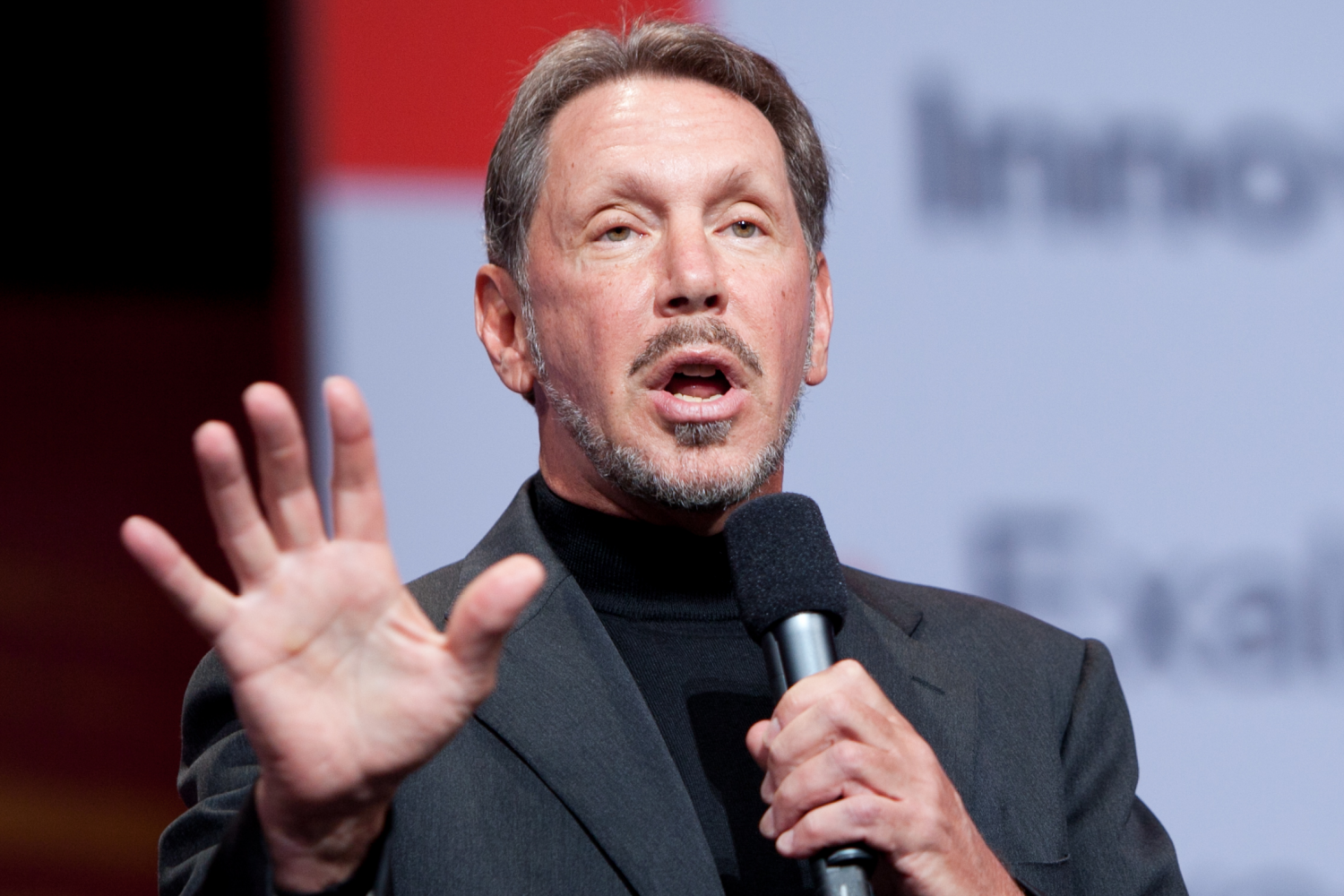
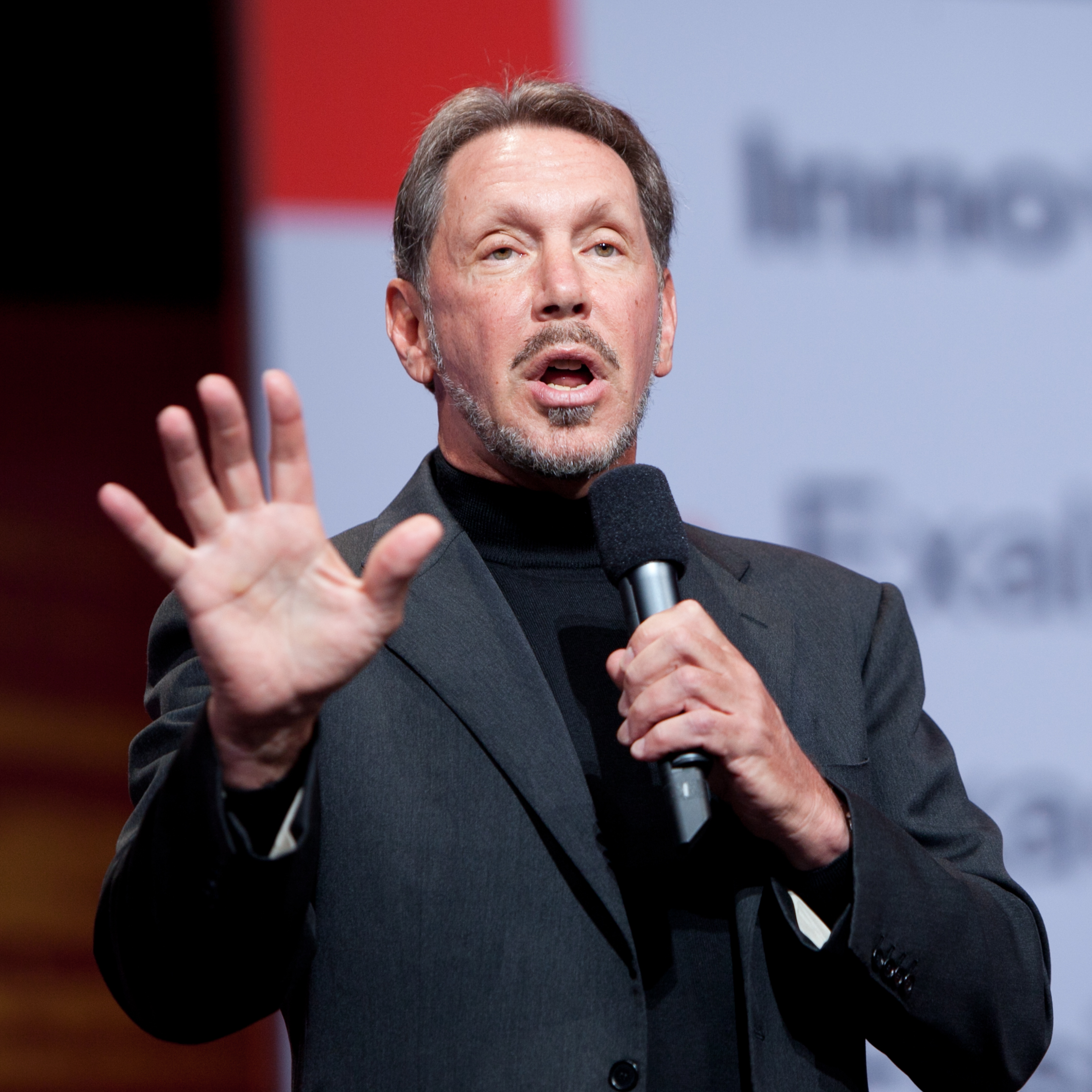
Is anybody really surprised that Oracle co-founder Larry Ellison is planning a fundraiser for U.S. President Donald Trump?
After all, back in 2014 Ellison established his affinity for the Republican party and Libertarian-backed politicians by raising money for Rand Paul, who was then rumored to be a front-runner for the 2016 Republican presidential nomination. Paul ultimately lost that contest to Trump, who was backed by another well-known Libertarian. Now it seems that some Oracle employees are shocked, repeat, shocked to learn that Ellison has not changed his political stripes.
Ellison supported other presidential candidates before Trump
In the run-up to the 2016 primary elections, Ellison also donated a total of $4 million to a super-PAC supporting Marco Rubio, thereby cementing his reputation as a key Silicon Valley fundraiser for Republican presidential hopefuls.
After Trump won the Electoral College vote, Ellison — and Oracle — continued to maintain ties with the new administration.
Soon after Election Day 2016, Ellison’s co-chair at Oracle, Safra Catz, was invited onto the Trump transition team.
Upon accepting the position, Catz reportedly stated that she would “tell the president-elect that we are with him and will help in any way we can.”
That statement apparently prompted at least one senior executive at Oracle, George Polisner, to resign in protest.
Polisner publicized his objections on his personal Linkedin page, writing in answer to Catz that that (emphasis his) “I am not with President-elect Trump and I am not here to help him in any way.”
“In fact,” Polisner continued, “When his policies border on the unconstitutional, the criminal and the morally unjust, I am here to oppose him in every possible and legal way.
Oracle employees react (or not) to Trump fundraiser
Vox reported the news about Ellison’s fundraiser last week, under the headline, “Furious Oracle employees are demanding that Larry Ellison cancel his Trump fundraiser.”
“Oracle co-founder Larry Ellison’s decision to host a fundraiser for Donald Trump next week has awoken the usually passive workforce at his company, angering some employees who are going public with their disgust over Ellison’s actions,” recounted Vox reporter Theodore Schleifer.
Schleifer did interview several Oracle employees who voiced strong opinions about the fundraiser.
As of this writing, though, no reaction of consequence has materialized aside from an internal employee petition and other internal communications.
Public online petitions and open letters have emerged as mainstays of employee activism, but so far none has appeared at Oracle, making it even more unlikely that a Wayfair-style walkout is in the works.
For Oracle, money talks if you’re the alternative to Amazon
In another sign that the fundraiser will probably not prove to be a tipping point for employee activism at Oracle, on February 14 Bloomberg reporter Eric Newcomer noted that there is a direct bottom line connection between Oracle’s business and Ellison’s eagerness to establish financial credibility with the President.
As Newcomer reported, Oracle is “competing with the cloud computing wing of Amazon.com Inc.,” and launched the “anti-Amazon group” Free and Fair Markets Initiative.
“Oracle also worked desperately to derail Amazon’s bid for JEDI, a lucrative Defense Department cloud contract, going for far as to sue the federal government for illegally favoring Amazon,” Newcomer wrote.
In addition, the President has often been reported to be in a feud with Amazon CEO Jeff Bezos over coverage in the Bezos-owned Washington Post.
“Now, Ellison is making friends with his enemy’s enemy, who happens to be the President of the United States,” Newcomer wrote.
To underscore the point, the website banner for Ellison’s Free and Fair Markets Initiative depicts what can best be described as an Amazon worker street protest.
If Oracle employees engage in any similar action it will truly mark a tipping point.
As of now the expectations are slim to none.
Image credit: Oracle PR/Wiki Commons
Bezos Earth Fund: A $10 Billion Band-Aid for Amazon's Employee Activism Problem
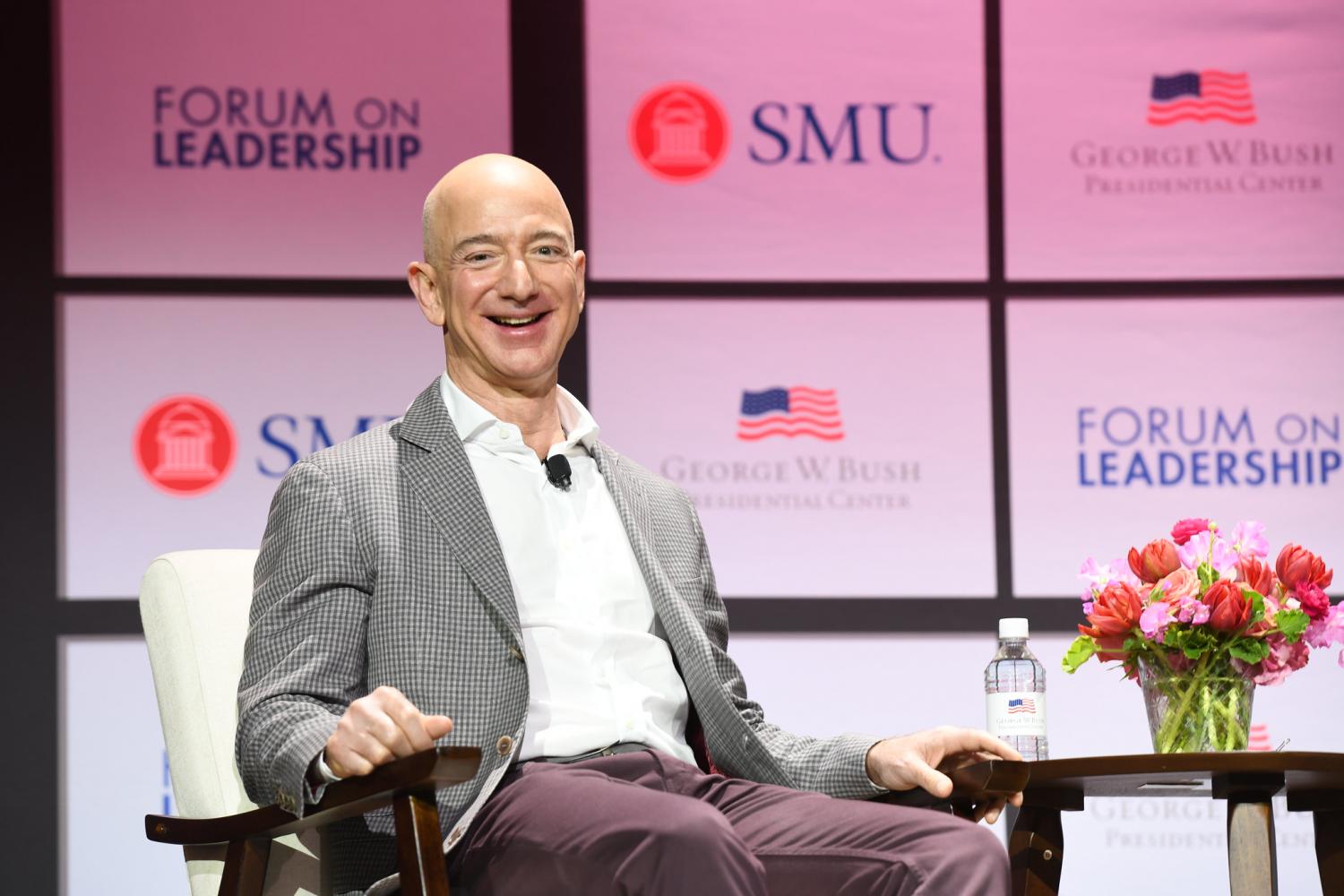
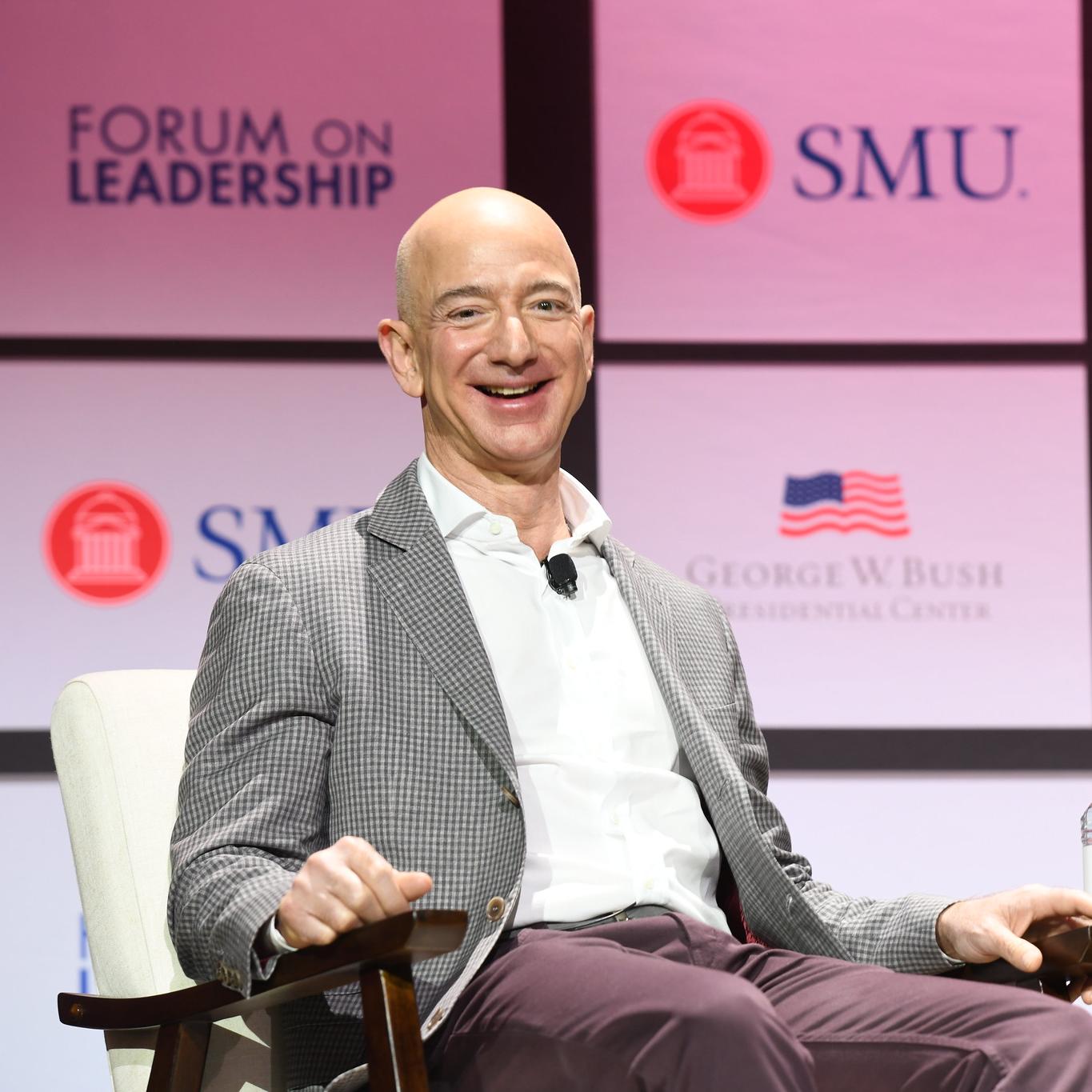
Earlier this week, Amazon’s Jeff Bezos announced that he is donating $10 billion of his personal fortune to establish the new Bezos Earth Fund, aimed at supporting efforts to address the impacts of climate change. That’s all well and good, but activist employees at Amazon have pointed out that it simply papers over the company’s contribution to climate change through its Amazon Web Services branch.
$10 billion to fight climate change and this is the thanks I get?
Amazon's founder sparked a torrent of media attention when he announced the new Bezos Earth Fund in a post on his personal Instagram account.
Though the $10 billion figure is impressive, several commenters on the post pointed out that the pledge is small in size relative to Bezos’s overall estimated wealth of more than $124 billion. Others took the opportunity to draw attention to Amazon’s notorious tax issues.
Social media comments could easily be the work of trolls and competitors, but there was no mistaking the reaction from Amazon employees.
A vocal group of employees has been pressuring Bezos to commit Amazon to serious action on climate change under the name, “Amazon Employees for Climate Justice.”
Soon after Bezos posted his pledge on Instagram, they shared a public message that gave Bezos props for philanthropy but otherwise excoriated him.
“When is Amazon going to stop helping oil and gas companies ravage Earth with still more oil and gas wells?” they wrote, and continued:
“When is Amazon going to stop funding climate-denying think tanks like the Competitive Enterprise Institute and climate-delaying policy? When will Amazon take responsibility for the lungs of children near its warehouses by moving from diesel to all-electric trucking?”
The employee group also drew attention to a new Amazon policy that has an impact on the ability of employees to criticize the company in public.
“Will Jeff Bezos show us true leadership, or will he continue to be complicit in the acceleration of the climate crisis, while supposedly trying to help?” they concluded.
When your best philanthropy is not good enough
In bringing up the issue of philanthropy, the Amazon group touched on an ongoing trend within the corporate social responsibility movement.
The bar has been raised significantly since the 20th century, when the philanthropic model was the mainstay of corporate giving.
In the 21st century, a new model of corporate community involvement has begun to emerge.
Some of this activity has emerged in the media sphere, where leading companies have taken a stand against hate speech and other unacceptable behavior.
Others have spoken out on moral grounds against family separation and other controversial federal policies.
Still others have begun to partner with grassroots organizations on issues that were once considered taboo for corporate involvement, from common sense gun safety regulation to advocacy for LGBTQ civil rights.
The Bezos Earth Fund and climate action
That stepped-up behavior is reflected in the sphere of climate action and other environmental issues. Corporate leaders are beginning to move past the immediate goal of addressing their internal operations. They are adopting science-based targets for climate action and tackling the crisis from a wholistic, global perspective.
This is the point where the Bezos commitment falls short.
Although Amazon has already moved to decarbonize its delivery operations, the Bezos pledge mirrors the recent “carbon neutral” pledges of several leading oil and gas producers.
Those plans lean heavily on continuing to produce oil and gas. Such efforts amount to tidying up around the edges without addressing the root of the problem.
In his post, Bezos wrote that the Bezos Earth Fund will support “any effort that offers a real possibility to help preserve and protect the natural world.”
The details are yet to be seen, as Bezos plans to start funding projects later this year.
However, considering that Amazon’s oil and gas web service helps producers “identify potential reservoirs faster and cheaper,” chances are that the Bezos Earth Fund could help facilitate business as usual rather than working to help ensure that fossil carbon stays in the ground.
If Bezos thought to mollify Amazon employees with the new fund, he is most likely in for a surprise.
Image credit: Grant Miller for the George W. Bush Presidential Center/Flickr and Steve Jurvetson/Flickr
Did We Just Decouple Emissions From Economic Growth?
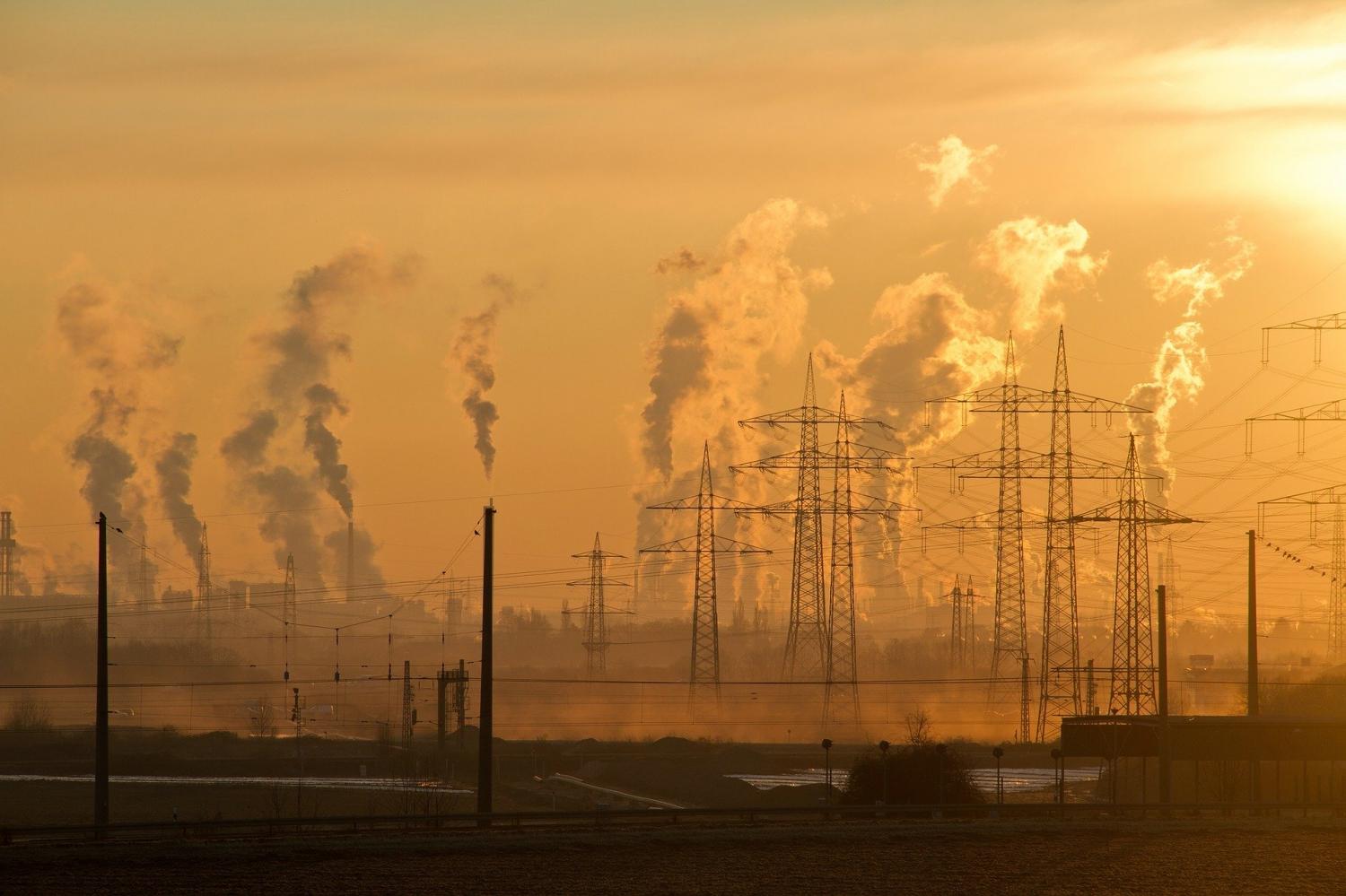
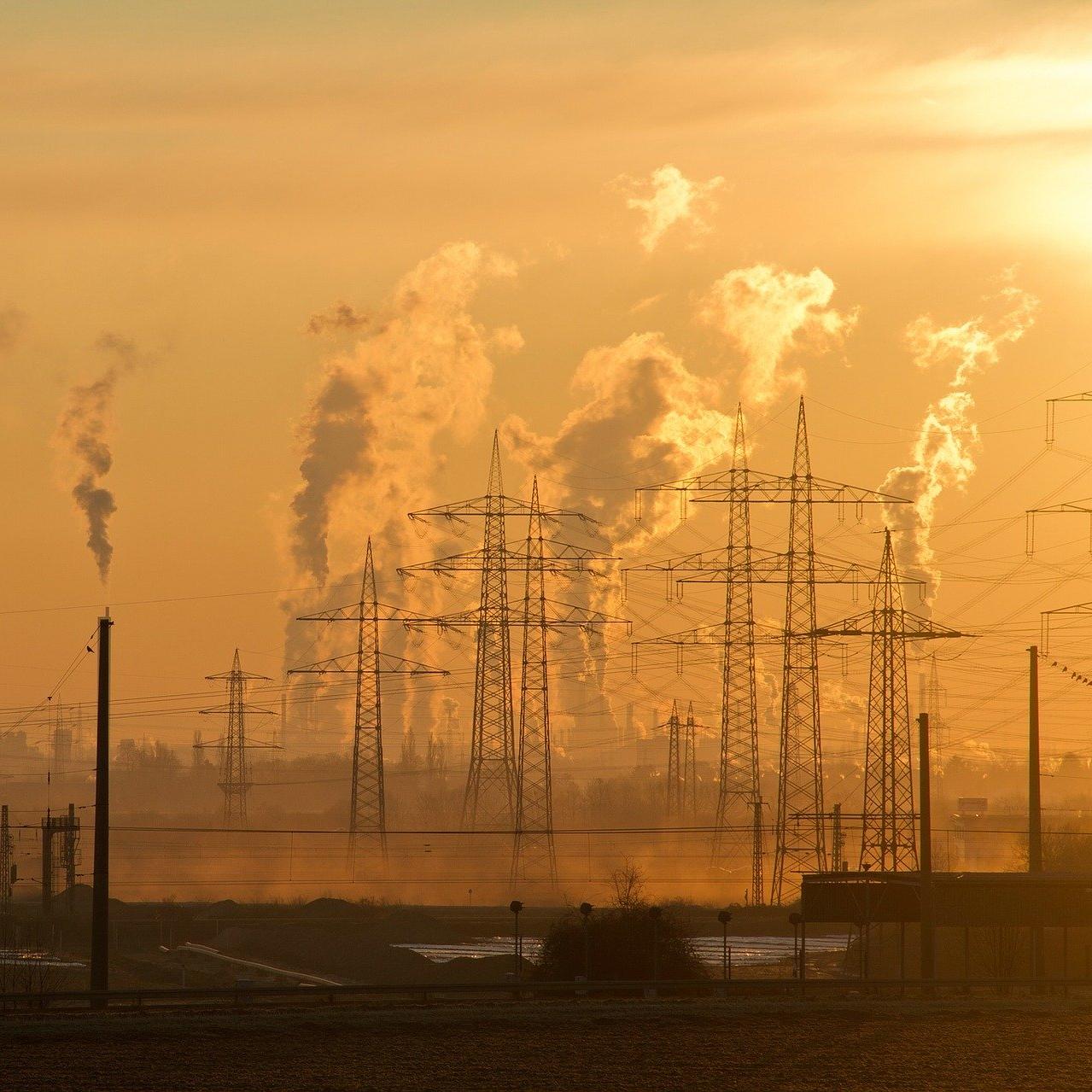
“We are in the beginning of a mass extinction, and all you can talk about is money and fairy tales of eternal economic growth,” Greta Thunberg told world leaders at the U.N. Climate Action Summit in New York City in September 2019.
But, is it wrong to assume we can have the best of both worlds?
Was 2019 a turning point?
Economists and environmentalists have long agreed on one thing: As long as global GDP grows, our emissions will, too. But in 2019, energy-related emissions remained the same as in 2018, at about 33 gigatons, while global GDP increased by nearly 3 percent, according to recent research from the International Energy Association (IEA).
What remains to be seen is whether or not this is “a definitive peak in global emissions, not just another pause in growth,” Dr. Fatih Birol, executive director of the IEA, observed in a Twitter thread last week.
A history of steady, coupled growth
The data has long supported the assumption that economic growth and emissions are strongly correlated. IEA data demonstrate that total global emissions were approximately 20.5 gigatons in 1990. Global emissions climbed steadily until, in both 2018 and 2019, they reached as much as 33.3 gigatons.
World Bank data further corroborates a link between energy emissions and GDP growth. In 1990, global GDP was around $22.6 trillion. By 2018, that number had reached almost $86 trillion.
Developing vs. developed country emissions
One nuance to the debate on greenhouse gas (GHG) emissions and economic growth is where the burden lies to decrease or slow the growth of global emissions.
Developed countries, including those in North America, Europe and East Asia, are known to have achieved prosperity through the use of heavily emitting energy sources and technologies. Developing countries, such as India and China today, are following a similar path — and many people argue these countries are entitled to achieve the same level of prosperity as the developed world, using whatever means available.
To that end, data from the IEA, the World Bank, and the International Monetary Fund (IMF) together offer a compelling summary of global development and emissions since 1990. While the developed world’s energy-related emissions peaked at 13 gigatons in 2007, emissions from the developing world continued climbing nearly every year.
Does that mean developing countries are to blame for our current crisis? Absolutely not.
Varying perspectives on the responsibilities of developing and developed nations to address climate change will persist. Despite, and perhaps to help settle that debate, the question of whether economic growth and prosperity are directly connected to emissions is one we must continue to explore.
If for no other reason, global society needs to find our way forward in what has been termed by United Nations Secretary-General António Guterres as a “Decade of Action.” This dynamic is a factor worth considering for experts building drawdown strategies.
Where do we grow from here?
As vindication for Thunberg, the data shows that total global energy-related emissions and GDP growth are related.
However, those who value economic growth needn’t be depressed. The data also shows that economic growth is still possible during years when energy-related emissions decrease. It may be slower growth, but it is still growth, nonetheless.
For the IEA’s Dr. Birol, the 2019 plateauing of energy-related emissions is “evidence that clean energy transitions are underway,” he said in a public statement last week. And, he said, that alone should fuel a growth in more investments and government policies that can in the long term, help the clean energy sector grow and thrive.
Image credit: Ralf Vetterle/Pixabay
Organizations Backed by $12 Trillion Demand More Climate Risk Disclosure

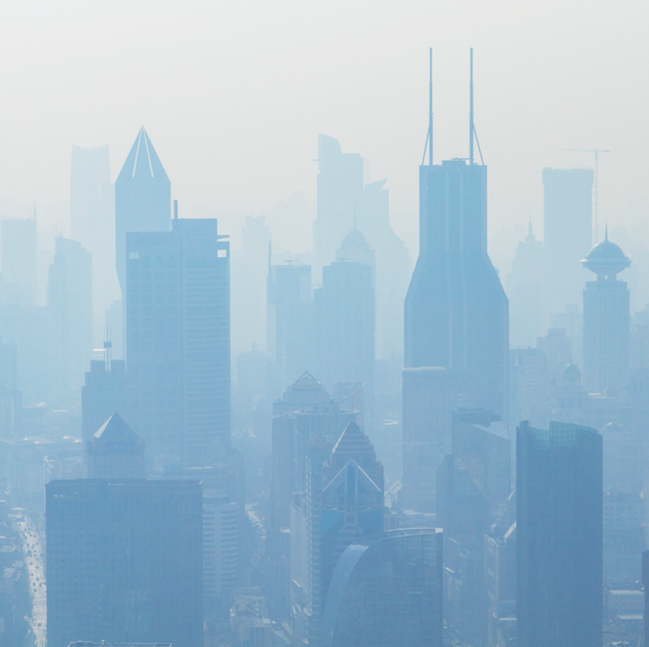
Climate change risks are no longer the elephant in the boardroom. More than 1,000 organizations have signed on to support the Task Force on Climate-related Financial Disclosures (TCFD), which works to enhance the transparency of corporations’ climate change-related financial risks.
These supporters’ collective market cap now reaches nearly $12 trillion, according to the TCFD. Mary Schapiro, head of the TCFD Secretariat, called this an “important milestone" for the group and the business world, demonstrating that global organizations now accept climate risks as financial risks.
The group's chair — billionaire businessman and U.S. presidential candidate Michael Bloomberg — says he, too, embraces that sentiment. “Increasing transparency makes markets more efficient, and economies more stable and resilient,” he wrote on the group's website.
Improving disclosures so investors are aware of climate change risks
TCFD’s stated aim is to “encourage firms to align their disclosures with investors’ needs” with regards to measuring climate change risks. As such, the organization says it is working to “develop voluntary, consistent climate-related financial risk disclosures for use by companies in providing information to investors, lenders, insurers, and other stakeholders.” These environmental, social and governance (ESG) disclosures include physical, legal and economic risks linked to climate change.
In July, Bank of England Governor Mark Carney, who launched the TCFD with Bloomberg in 2015, predicted that firms which did not take climate change into consideration would “go bankrupt without question.” In September, he addressed the United Nations, urging for greater transparency on climate risk. And he lamented slow movement within the global business community in an October BBC interview, insisting: “Now $12 trillion worth of balance sheets of banks and asset managers are wanting this disclosure [of investments in fossil fuels]. But it’s not moving fast enough.”
At the same time, Carney believes capitalism “is part of the solution," as he stated during an interview with British television last summer. He sees TCFD’s role as “helping to bring climate risks and resilience into the heart of financial decision-making.” TCFD, in Carney’s estimate, will help the world “improve the quality and quantity of disclosure and build a market in the transition to net zero.”
The benefits of transparent climate risk disclosure
According to the TCFD, climate-related disclosures benefit companies in multiple ways:
- With investors and lenders more confident in a company’s climate risk management, capital will flow more easily.
- Meeting disclosure requirements will be easier, as materials will already have been reported in financial filings.
- Greater organizational awareness of climate-related risks and opportunities translates into better strategic planning.
- Companies will stay ahead of growing demand from investors to disclose climate-related information.
Information provided to stakeholders such as investors, lenders, and insurance underwriters would help them “understand companies’ risks and opportunities from climate change.” Another benefit is helping global markets adapt to the new realities of a world with a changed climate.
Disclosures in action: Japan
In Japan, one advocate of more transparency on the climate change front is Hiro Mizuno, the executive managing director and chief investment officer of the $1.6 trillion Government Pension Investment Fund (GPIF). Mizuno says the mainstreaming of ESG-oriented investment will make it crucial for companies to disclose any climate change-related risks, as well as business opportunities. That’s why he sees TCFD’s disclosure framework as a win-win for both investors and corporates who need long-term capital injection.
GPIF published its first TCFD-aligned report in September 2019. Mizuno is urging GPIF’s asset managers to follow its lead “by sharing their analysis of climate-related risk and opportunities of the portfolios they manage for us,” he said.
Global support for climate risk disclosure surging
The TCFD now includes a network of over 1,000 supporters spread across 55 countries. While the market cap of its supporters now reaches nearly $12 trillion, their influence is far greater.
The organizations represent both the public and private sectors, and are as diverse as stock exchanges, national governments, corporations, central banks and regulators.
The 473 and counting financial firms that support TCFD manage $138.8 trillion in assets. In addition, companies that say they support this effort come from multiple industries, such as energy, metals, oil and gas and insurance.
Those supporters and interested parties are leveraging TCFD’s Knowledge Hub, case studies, and more to understand how they can adapt to the world’s growing demand for climate change-related risk reporting.
Image credit: Holger Link/Unsplash
The Business Case for Launching a Volunteer Time Off Policy


Employees are a company’s most valuable asset – they are the individuals on the front lines delivering services or selling products. As such, it is important for organizations to have a strong value proposition so that employees feel fulfilled by their careers. Increasingly, employees are looking for companies to provide opportunities to enrich their work environment with volunteerism—and when those companies deliver, the result is increased employee engagement and higher levels of employee satisfaction, which leads to stronger outcomes. To that end, your organization should consider launching a volunteer time off (VTO) policy if it has not yet done so.
A volunteer time off policy can engage employees
A recent survey by Deloitte on volunteerism found that 89 percent of employees believe that companies who sponsor volunteer activities offer a better work environment than those who do not. The survey also revealed that only 38 percent of respondents said that their employers provide opportunities for volunteering, while 69 percent shared that they would like to volunteer more. It’s not a coincidence that most companies cited as “best places to work” offer some version of a volunteer time off policy. These results suggest that it is imperative for organizations to act.
Northwestern Mutual is one of many companies who recently recognized the importance and impact volunteer time off provides employees, as well as communities, and created a formal program for employees in 2018. We were thrilled to see that employee volunteerism increased by 20 percent—over 36,000 hours—in its first two years. Beyond the numbers, we knew the program was effective when we heard the feedback from our employees. “Working for an employer that offers volunteer time off allows me to connect and bond with children and their siblings who are affected by childhood cancer during daytime hours, which is an experience I wouldn’t be able to have otherwise,” said one employee when asked for feedback.
Volunteering together can have positive impacts on team building and networking internally as well as recruiting and retaining talent. For existing teams, volunteering offers an opportunity to get to know colleagues in a different setting to help develop interpersonal connections and deepen company culture. Volunteering as a team also offers an opportunity for managers to observe employees natural strengths and talents in a different light, which can open new doors for business opportunity and growth. Additionally, candidates are looking for companies that offer volunteer benefits because it speaks to a companies’ culture and values.
The financial benefits of having a VTO
Take a moment to think about your hiring costs, factoring in onboarding and training time, learning and development. Now, add in the cost of time with an unfulfilled role. Employee turnover rates are expensive for companies and take a toll on morale overall. Retention is key to reducing personnel costs and enacting policies that support what employees are looking for is a simple way to reduce those costs. On top of retention efforts, these policies can help recruit and attract new candidates to your organization as well.
A 2018 survey found that 79 percent of those who volunteer with a nonprofit also donate to that organization. Supporting employee volunteer efforts could mean that your company is making a positive financial impact on organizations most in need of support as well. In the first two years of offering the VTO policy, over 1,850 Northwestern Mutual employees took the time to volunteer.
A VTO is one way companies can pay it forward
While we don’t have exact numbers on how many of those employees were driven to donate after volunteering—you can begin to imagine the impact that large companies can have on nonprofits by offering these policies. For causes related to childhood cancer, those donations could mean funding critical hours of research towards a cure. For causes related to education, those donations could make the difference in helping a child graduate high school and going on to college. The potential benefits are infinite—and they can all start with company volunteer policies.
It’s one thing for companies to encourage volunteerism, yet it’s another to drive it as part of the company culture. Our commitment to giving back is evident across the company and it starts with our enterprise leadership group. These leaders contribute as board members to more than 30 organizations, supporting a variety of initiatives and causes including education, health and children among others. We believe that when leadership “walks the walk,” it helps set the tone for a culture that values and recognizes the importance of giving back. As leaders, we empower our employees to volunteer and we implore teams to follow suit because we know that together, we can make a lasting impact in the communities where we live and work.
Image credit: Pexels
Nuro’s Self-Driving Electric Cars Will Soon Make Deliveries in Houston
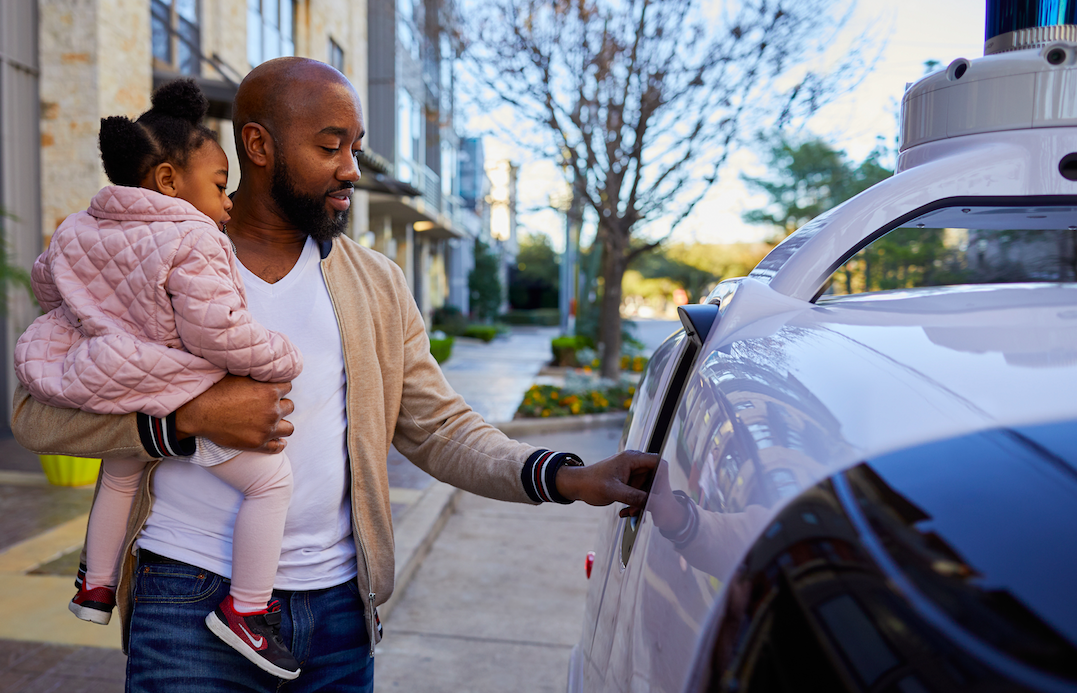
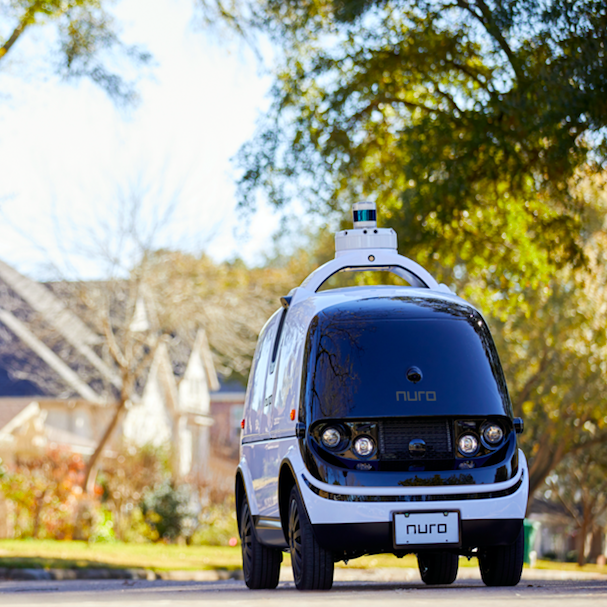
Coming soon to city streets in Houston: all-electric, self-driving cars that will deliver fast food, groceries and small packages.
Nuro designed and built the the battery-powered R2 vehicle in partnership with Roush Enterprises. Smaller than any passenger car on the market, the R2 is expected to hit the roads soon for test drives in Houston, Texas. In the not-so-distant future, Nuro is hopeful that the R2 will be operating in Houston as part of its delivery agreement with Walmart, Domino’s and Kroger.
“Our second-generation vehicle will advance our goal of transforming local commerce,” said David Ferguson, Nuro’s cofounder and president. The R2 is designed for use mostly in suburban and residential neighborhoods.
The R2 recently received the U.S. Department of Transportation’s (DOT) first federal exemption to test a self-driving vehicle on public streets. “It’s a signal that the agency, which has stated publicly that it doesn’t want to stand in the way of the new technology, is likely to approve more vehicles,” University of South Carolina law professor Bryant Walker Smith, who studies vehicle automation, told PBS NewsHour.
Rethinking the design of self-driving cars
Without a driver, windshield or mirrors, the R2 relies on AI software, digital sensors, cameras and LIDAR technology. If necessary, the vehicle can be controlled remotely. A 360-degree vision system allows R2 to monitor its environment, including traffic, pedestrians, bicycle riders and road conditions. The front end of the R2 has been crafted to give way should it strike a pedestrian or another vehicle.
“We were convinced that such a class of vehicle had the potential to be safer than passenger vehicles: more nimble, narrower, and better able to prioritize the well-being of other road users,” Ferguson wrote in a blog. “And by building such a vehicle we could also lower vehicle cost, improve the customer experience, and accelerate autonomous technology deployment by solving problems jointly through both hardware and software development.”
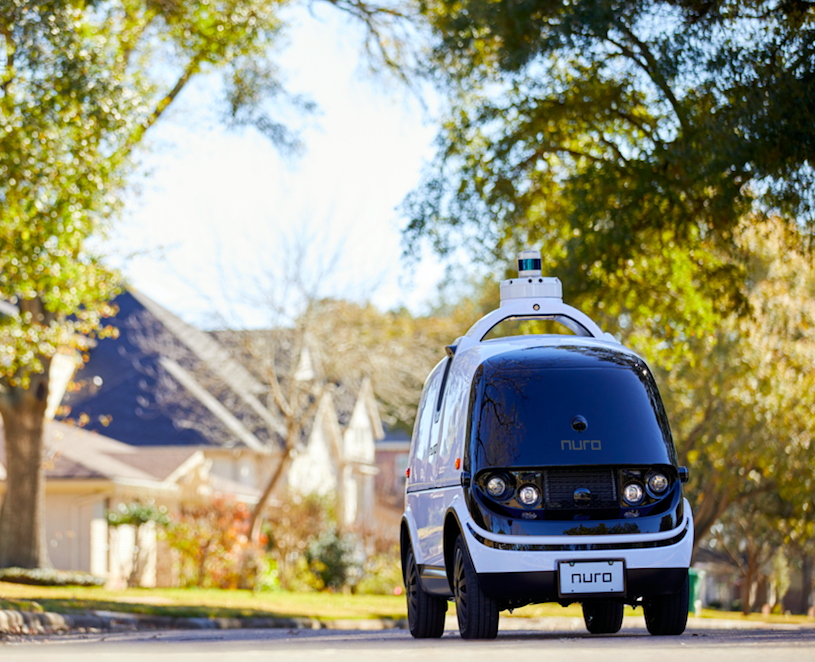
Photo: Nuro self-driving cars will soon be making deliveries for restaurant and supermarket chains in Houston. (Photo courtesy Nuro)
This latest vehicle includes several improvements from its predecessor, R1, which was launched in Scottsdale, Arizona, in December 2018. R1 was the first unmanned delivery service for the general population. “We added two-thirds more compartment space without increasing vehicle width, and we introduced temperature control to help keep food fresh,” Ferguson noted in his blog. “R2 uses a custom battery solution that nearly doubled the R2 battery size, enabling all day operation.” Doors open curbside, so customers do not have to step into traffic to retrieve their deliveries.
With origins at Google, Nuro is scoring investors
Ferguson started Nuro, based in Mountain View, California, with Jiajun “JZ” Zhu, with whom he worked on Google’s Self-Driving Car Project. That became Waymo, which manufactures self-driving passenger cars, four years ago. Working with SoftBank and other investors, Nuro has raised about $1 billion.
It took three years for Nuro to win R2’s federal DOT exemption; Nuro is still required to schedule periodic meetings with the DOT, provide safety reports, and gather and submit feedback from community members where the vehicles are operating. Those in the industry are anticipating faster action on broader guidelines. The next step in the evolution of driverless, automated vehicles is for the federal agency to begin drafting new regulations that govern the manufacture and operation of driverless cars. The National Highway Traffic Safety Administration (NHTSA) began the process last summer, seeking public comment on removing regulations for vehicles with automated driving systems.
“The DOT has taken a critical first step in enabling safety innovations, but exemptions are a temporary fix for an industry that’s reimagining what it means to drive,” Ferguson wrote. “Moving forward, we must modernize the existing regulations that never envisioned a vehicle without a driver or occupants, and everyone in the industry must work to ensure self-driving technology is tested and deployed in the safest possible vehicles.”
Image credits: Nuro